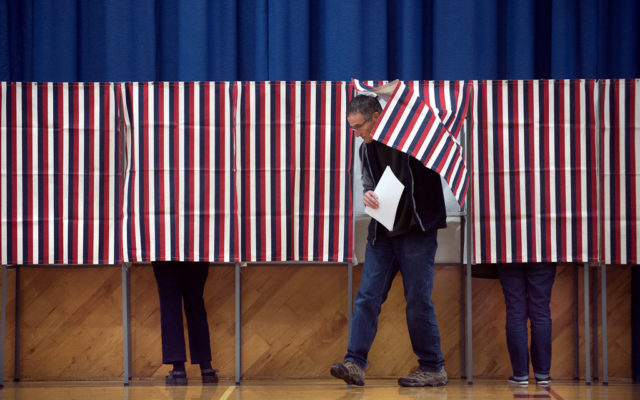
Maine’s high court under time crunch to rule on newest ranked-choice voting case
AUGUSTA — The validity of just dozens of signatures could determine whether ranked choice voting is used in Maine’s presidential election as the state’s high court is under time pressure to rule with a key ballot deadline looming in less than a month.
Justices on the Maine Supreme Judicial Court are unlikely to dally after hearing oral arguments on Thursday in Secretary of State Matt Dunlap’s appeal of a lower-court judge’s ruling that his office erred in striking a Maine Republican Party challenge of a 2019 law from the November ballot. Dunlap contends that the party fell 56 signatures short of getting it on the ballot.
At stake is not just whether Maine voters will get the opportunity to overturn the law that expanded ranked-choice voting to presidential elections here, but also whether the method will be used in the 2020 race between President Donald Trump and former Vice President Joe Biden. If the challenge makes the ballot, ranked-choice voting won’t be used in that race.
Absentee ballots in the race are supposed to be sent to voters by early October. The justices are unlikely to meet the Sept. 24 deadline to rule on Dunlap’s appeal. There is no drop-dead date for ballot printing, but the secretary of state’s office has made it clear that waiting until days before absentee ballots are supposed to be available in early October would be too late.
State and national Republicans sunk over half a million dollars into promoting the referendum. The case before the high court hinges on the wonkish constitutional question of whether circulators — those who notarize and submit signatures from voters to qualify measures for the ballot — must register to vote in towns they help collect signatures in before or after they begin.
The question was remanded back to Secretary of State Matt Dunlap’s office twice after he initially determined the effort fell short of the 63,067 signatures needed to get on the ballot. A federal judge turned back another challenge to ranked-choice voting in August for the second time in two years. Maine became the first state to use the method after a 2016 referendum.
The decision could hinge on just a handful of votes. Each remand winnowed down the number of signatures deemed valid. The most recent ruling from Superior Court judge Thomas McKeon qualified the ballot measure by only 22 votes out of the more than 63,000 needed, leaving little error margin for Republicans.
Assistant Attorney General Phyllis Gardiner, representing Dunlap, argued McKeon should have disqualified duplicate signatures or those from unregistered voters. If the court agrees, Republicans will be 56 signatures short. Gardiner said the office would have brought this issue to McKeon’s attention, but the timing of his decision last Monday made it difficult.
Justices seemed aware of the time crunch and questioned whether it would be prudent for them to scrutinize the ruling. Acting Chief Justice Andrew Mead asked whether getting into McKeon’s math on the petitions would be getting into the “nitty gritty” of the issue and beyond their scope.
Later, Mead asked the Republicans’ attorney, Patrick Strawbridge, if the “press of time” has given the courts enough time to vet the various arguments. Strawbridge said the tight time frame is a function of law, but that reopening McKeon’s math would do “a serious disservice not only to this court,” but others who may want to challenge future decisions on signatures.